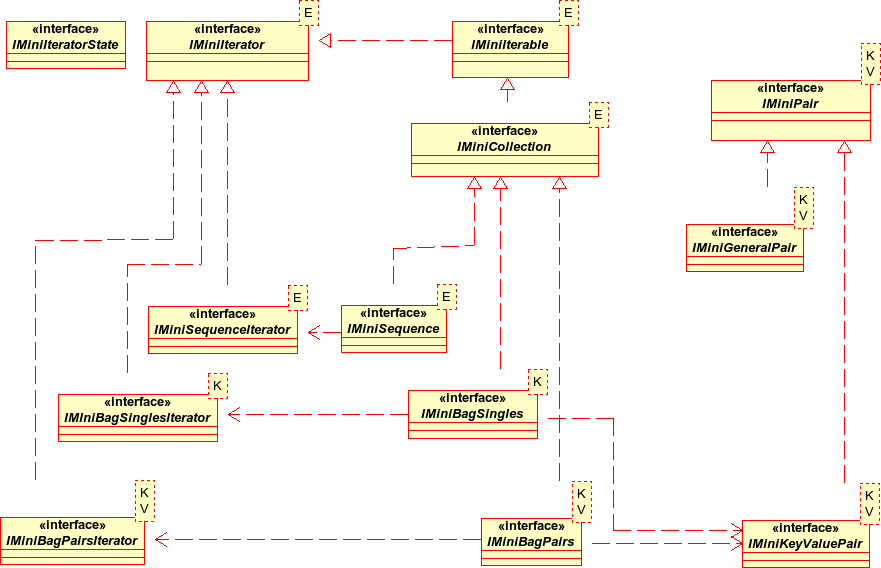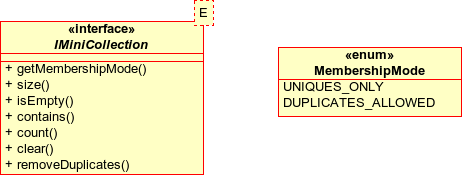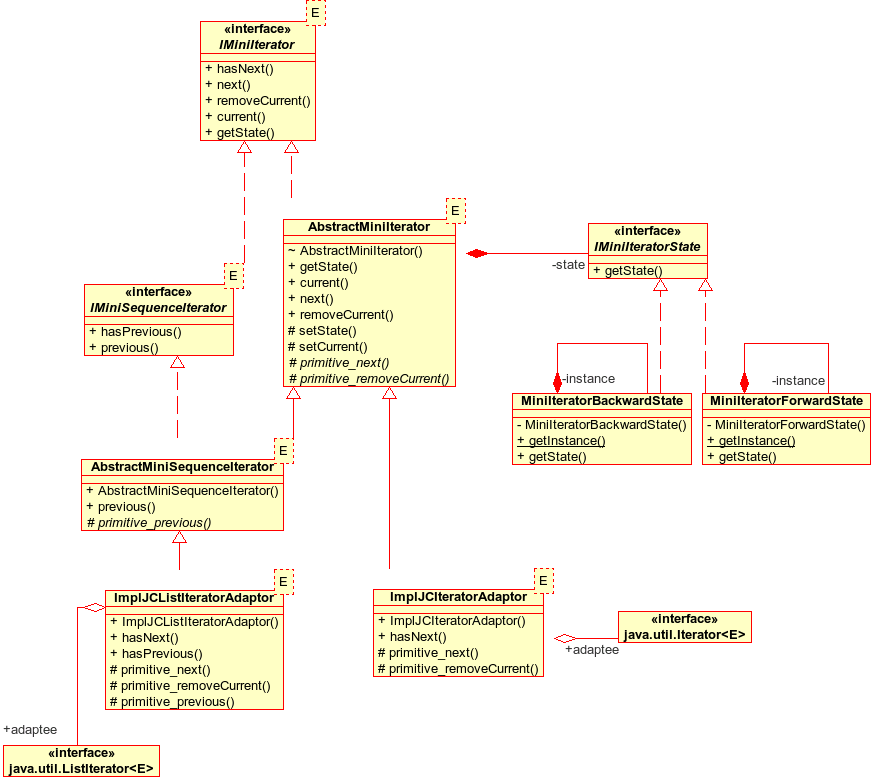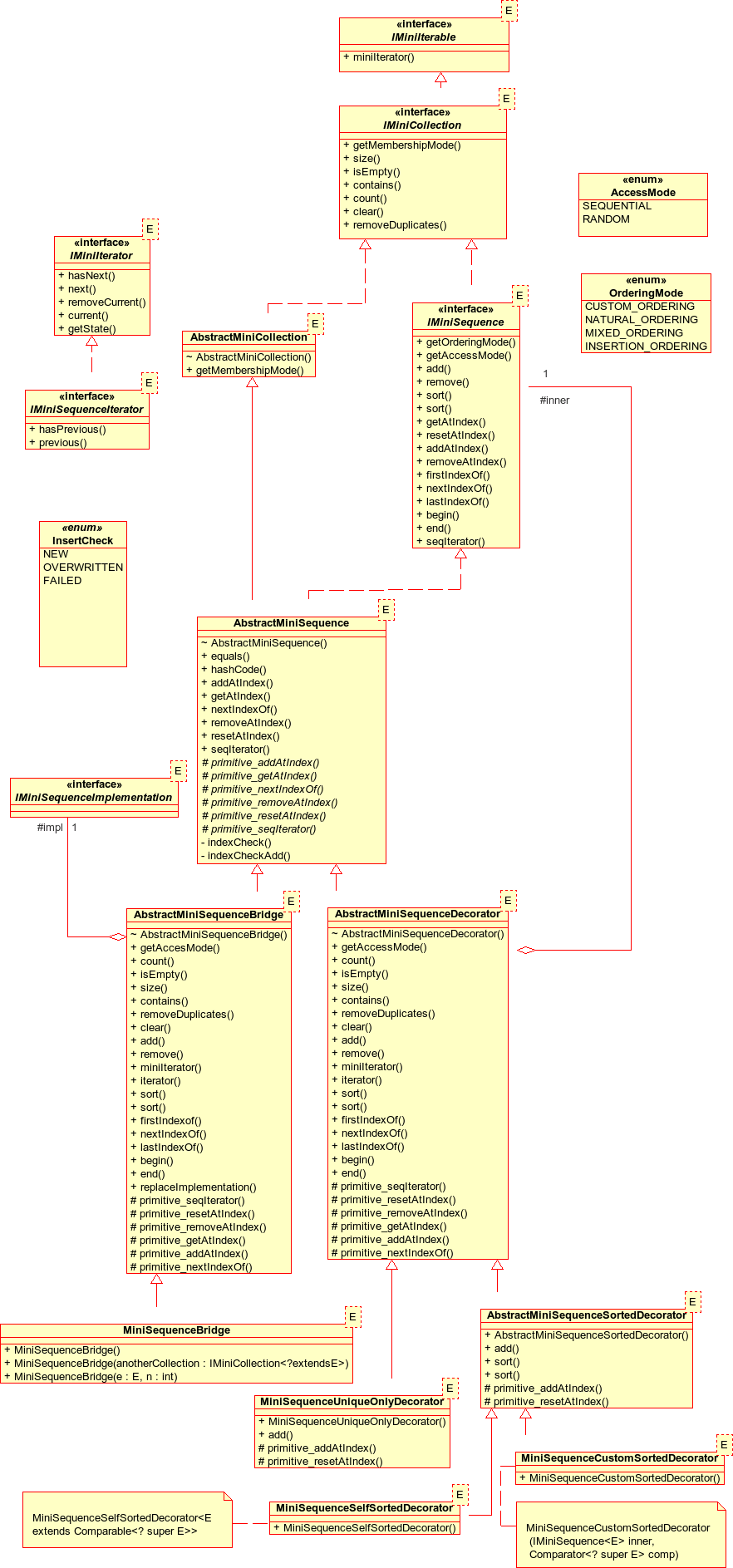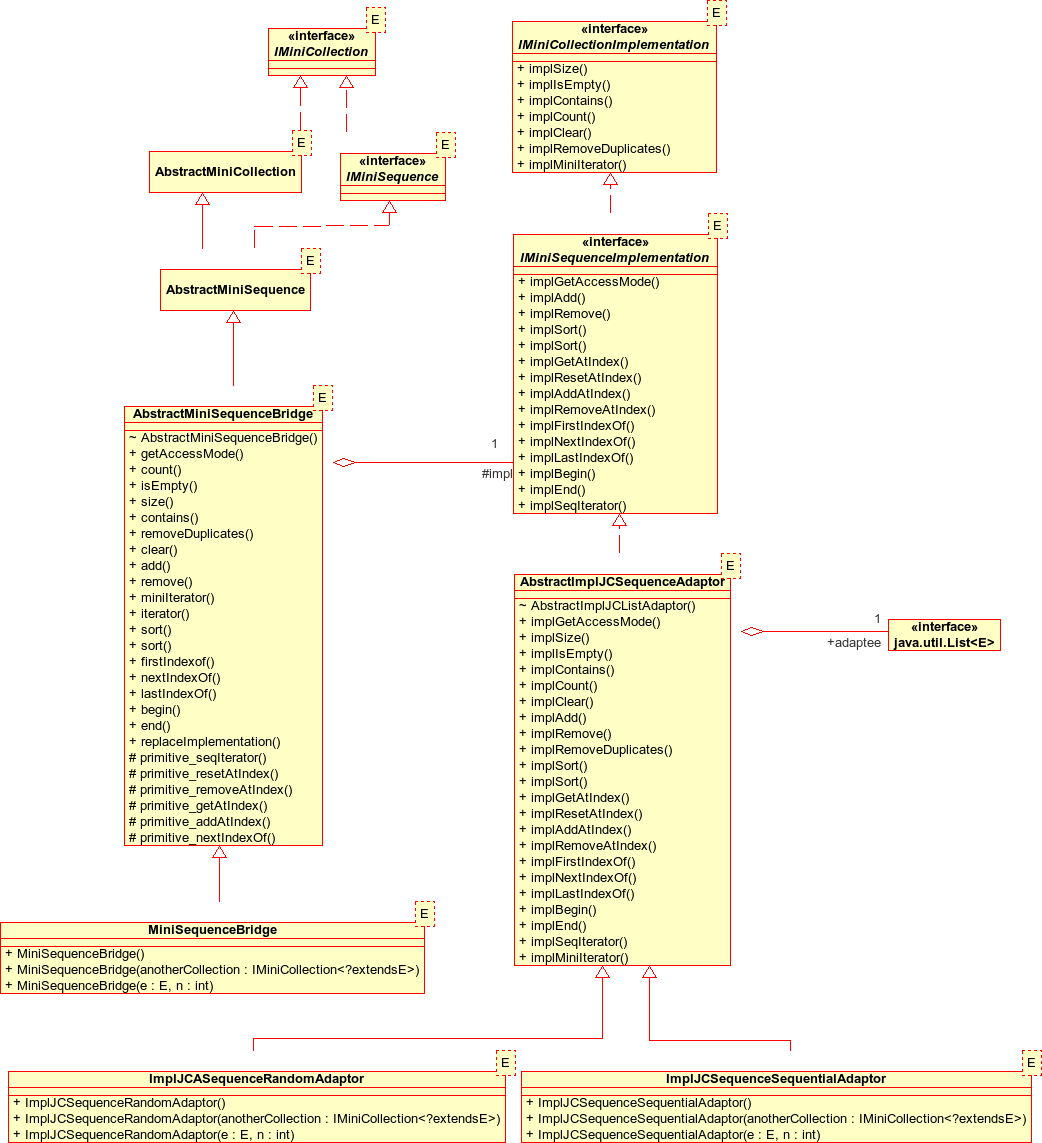User:Jenny Harlow/Design study/Initial design detail
Navigation shortcuts: Wiki users:Jenny Harlow:Jenny Harlow Design study
Contents |
Initial design detail
The 'initial design' was a bit uneven - I had thought out quite a lot on the Sequences but not for the Bags. On this page I will discuss the design as it was at that stage. Just thinking about it and looking at the diagrams here I could see some improvements I should make, and when I implemented it I found more.
Main interfaces and types
I called the collection MiniCollection. The main types are specified with interfaces: the IMiniCollection base type for collections, subtyped with IMiniSequence, IMiniBagOfSingles, IMiniBagOfPairs. I found it helpful to have interface names starting with 'I' to identify my files. The actual names are not user-friendly, but at the design stage I was thinking very literally about them.
An IMiniCollection, specified using the generic type <E>, is a container of elements E. IMiniCollection specifies operations I though should be common to all containers. The big problem for me, as for the Java Collections Framework, was to try to find a way to provide a collections framework that did not sprawl over hundreds of collection types, all doing their own thing in their own way. I wanted to do better than Java at establishing what key behaviour made a type and then abiding by that contract, but I also wanted to avoid the type sprawl. My approach was to write the main interface contracts in a way that anticipated some 'modifications' in behaviour from the subtypes, and ensure that the client can query any characteristic which would lead to these modifications (interrogation methods, discussed below). This is still a fudge, just not as extreme a fudge as 'optional' methods, and I hope that the way that I have used it does not push the boundaries of design by contract too far.
- The disadvantage of this approach is the large grey area between genuine added behaviour and unsubstitutable behaviour.
- The main advantage is that it enables the client to only have to know about a smaller number of interfaces. I could not find another way to avoid a sprawl of types which specified enough behaviour to be useful to the client.
- The other advantage is that more dynamic changes in behaviour can be accommodated.
- I decided that the approach was justified in order to give an more accessible, flexible and usable framework.
- Interrogation methods are not used for type switches - at no point does an implementation check its own state with respect to one of these interrogation methods to determine its behaviour
- I could have used tag interfaces instead but I wanted to keep the flexibility to allow IMiniCollection objects to able to change these characteristics dynamically.
- I wondered briefly about using the State pattern, but it is unsuitable (I explicitly did not want the fancy type-switch that State allows, and there would have had to have been states reflecting all possible combinations of characteristics which is messy and hard to maintain).
- I used Enums for interrogation methods (more flexible and informative than booleans, typesafe alternatives to numeric coding).
All IMiniCollections are iterable: IMiniCollection and implements IMiniIterable and IMiniIterable types have a factory method miniIterator() returning an IMiniIterator type iterator to the collection. This is just a copy of the way in which a Java Collection implements Iterable, but I wanted my own iterators.
- IMiniCollection subtypes have an equivalent subtype of IMiniIterator. This gives a parallel hierarchy problem which the use of the factory method to allow each IMiniCollection subtype to make its own iterator helps to resolve (as it does in the Java Collections Framework).
IMiniPair is not a subtype of IMiniCollection. This is a general pair type (which I think should be part of the general Java API). Mine is very basic and the main point is to be able to subtype it to the IMiniKeyValuePair type. An IMiniPair provides read access to the first and second members in the pair thought the getters but no write access. An IMiniGeneralPair subtype adds write access to both but the IMiniKeyValuePair only adds write access to the second member in the pair (the 'value' member). Thus both IMiniGeneralPair and IMiniKeyValuePair support the IMiniPair contract and can be substituted when a client expects an IMiniPair with no unpleasant surprises. The IMiniKeyValuePairs are used by the bags.
An IMiniCollection:
- can report its membership mode (using enum MembershipMode). This is an example of an "interrogation method". Some objects of the IMiniCollection type will only permit unique members.
- can report its size (the number of elements in it), whether it is is empty, whether it contains a specified element, and count of the the number of copies of a specified element it contains.
- has two 'destructive' operations: clearing (emptying) the entire container and removing all duplicate elements.
- I had decided not to try to deal with unmodifiable collections and could not see any reason why subtypes would want to not support these operations, and I thought that these operations could be appropriately applied at the level of a very general collection of elements.
- As you would expect, removeDuplicates() subsequently caused trouble (when it came to Bags, it is not necessarily obvious to clients what an 'element' of the collection is as far as the IMiniCollection type is concerned). This probably should not have been an IMiniCollection operation.
